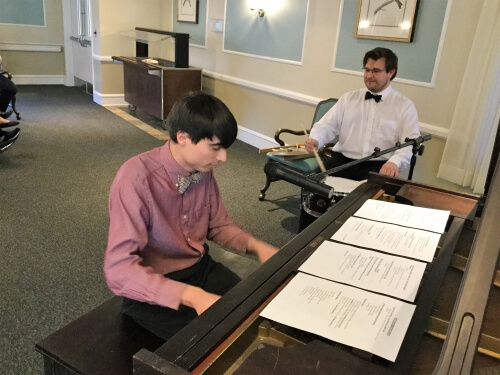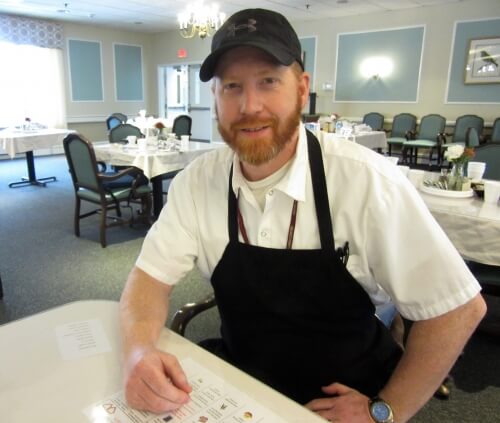Mother’s Day: Mother and daughter bring compassion and determination to Homeland operations
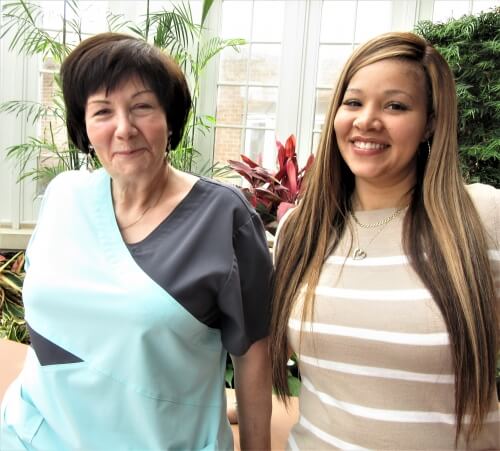
Mother and daughter, Pam and Ashley.
Residents, staff, and family often say the same thing about Homeland Center: “Everyone here is like family.”
Homeland cultivates that atmosphere through its comfortable environment, high standards, and respect for every individual.
But there’s one thing more: Homeland welcomes actual family relationships on staff. Generations of mothers, fathers, children, aunts, uncles, nieces, and nephews have devoted themselves to the care of residents.
Today, they include the mother-daughter pairing of Assessment Coordinator Pamela Brown and Director of Social Services and Ellenberger Unit Coordinator Ashley Bryan. Each pursued a different professional discipline but contributes to the life of Homeland with shared joy and a commitment to excellence.
Pam was the first to join Homeland. As a girl, she knew she would be a nurse. She loved the series of books about sleuthing nurse Cherry Ames – a sort of white-capped Nancy Drew.
In her first job, she cared for cancer patients and accident victims. She saw motorcyclists who worked against all odds to recover from head injuries.
“A lot of times, they would walk out the door,” she says.
Her next job put her in a center for children with severe disabilities. Some endured seizures lacking outward manifestation, so Pam learned to watch for the signs in their eyes. Some days, she brought in Ashley to see where she worked.
“It taught me there are different people in the world,” Ashley says. “I learned about compassion.”
Pam’s work at a county nursing facility immersed her in an adventure that might have challenged even the indomitable Cherry Ames. For three of her 10 years there, she cared for men with histories of poor health and tough lives. She was “scared to death” at first but soon learned to see past their hard-bitten exteriors.
“They all just needed love and a soft touch,” she says. “You had to get beyond that initial harshness. When you learned how to work with them, they were all like little teddy bears.”
Pam joined Homeland in 2006 when she was asked to join the Data Set Documentation department responsible for insurance, billing, and the comprehensive resident assessments required by federal regulations.
“I loved what I saw,’’ she recalls of her first visit. “They had flowers everywhere and the residents’ rooms were so nice. It was a very homelike atmosphere. Everybody pulls together. Everybody truly cares about each other.”
Watching her mom at work, Ashley recognized her own desire to be “a helping professional.”
“She taught me to be caring,” Ashley says. “She taught me to be confident and go after what I wanted.”
Ashley discovered her proclivity for social work while working as a lifeguard in city housing complexes, where she might be a nurturing babysitter or the enforcer, depending on the circumstances.
While Ashley was working on her master’s degree in social work, Pam suggested that she perform her internship at Homeland. Arriving in 2011, Ashley learned how to manage caseloads in Homeland’s social services office. When Homeland offered her a full-time job, it came with the additional role of activities director. There, she strengthened fundraising capabilities, to finance an increasing array of engaging activities, and the database of community resources.
Homeland activities, she believes, have the power to enhance the quality of life, rounding out Homeland’s meticulous care that Medicare recognized with its highest rating as a CMS Five-Star Skilled Nursing Care Facility.
In July 2018, Ashley took on a new role as coordinator of Homeland’s Ellenberger Unit, for residents needing memory support.
“I love this unit,” she says. “Every single person is different; they’re unique. You can never really have a bad day on this unit.”
Pam spends her days meeting and carefully assessing new residents, catching every nuance to lay the groundwork for meeting their health needs as long as they’re at Homeland.
Ashley says her mom offers “compassion and thoroughness” to Homeland’s caring environment.
“Her job is very detail-oriented,” Ashley says. “She has to have conversations with the residents in such a way that they will give her the right information. She builds trust and compassion.”
Pam says that Ashley brings “determination.”
“She will not compromise when it comes to the well-being of the residents,” she says. “Being an advocate for residents, she will stand her ground.”
Both agree that they love working at Homeland.
“It’s been such a blessing,” says Pam, “to be able to see your child every day.”


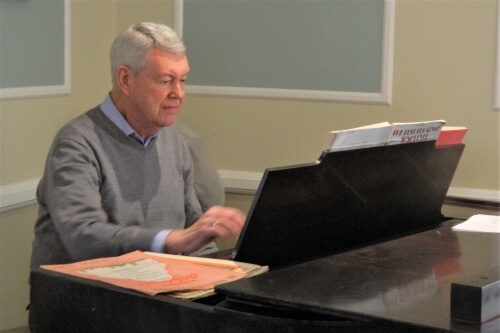
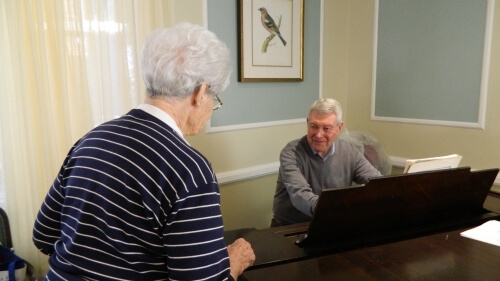 Residents, he adds, are “very generous with their comments.” On this particular day, resident Rita Sperling approached Lau following his performance.
Residents, he adds, are “very generous with their comments.” On this particular day, resident Rita Sperling approached Lau following his performance.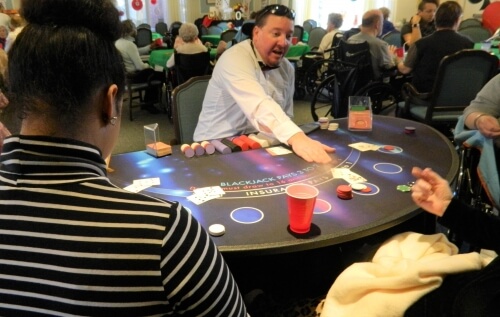
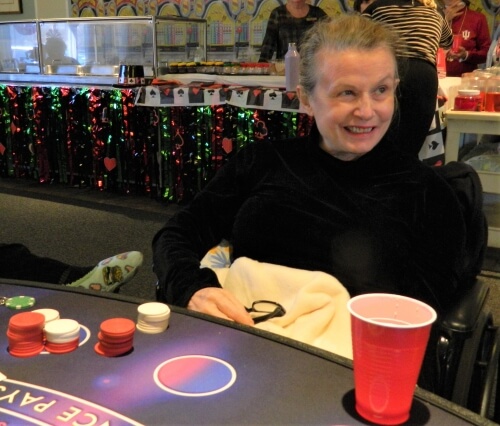 At the blackjack table, chip value ranged from a pretend $50 to $1,000, depending on the color. Round after round, resident Sandy Friedman let all her chips ride until her stash ballooned to $1,600.
At the blackjack table, chip value ranged from a pretend $50 to $1,000, depending on the color. Round after round, resident Sandy Friedman let all her chips ride until her stash ballooned to $1,600.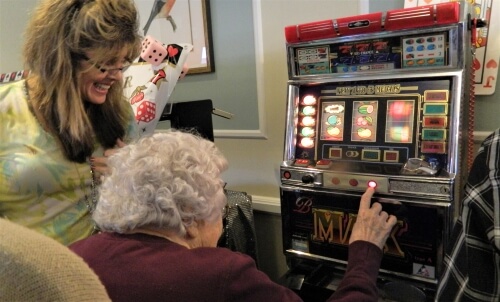 All the residents came away winners and used their chips to select prizes from a table loaded with candy, puzzle books, and stuffed toys.
All the residents came away winners and used their chips to select prizes from a table loaded with candy, puzzle books, and stuffed toys.

